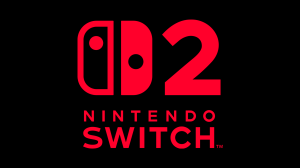After years in development and multiple delayed release dates, Disney’s live-action take on Mulan was finally released to the masses over the weekend. The film – which was offered through Disney+’s Premiere Access tier – has been buzzworthy on social media over the past few days for an array of reasons, ranging from celebratory to problematic. The latest element of the film to cause controversy is actually hidden in the film’s credits, particularly, its “Special Thanks” section. As multiple reporters and scholars have taken to social media to point out, the special thanks include a mention to the Turpan Municipal Bureau of Public Security, a controversial organization that has been tied to Muslim concentration camps in recent years.
Videos by ComicBook.com
This is truly outrageous: The new live-action Mulan THANKS the Turpan Public Security Bureau (in southern Xinjiang) in the credits. That specific public security bureau has been deeply involved in the Xinjiang concentration camps.
h/t @jeannette_ng @shawnwzhang pic.twitter.com/db8bpA3Yl1
— B. Allen-Ebrahimian (@BethanyAllenEbr) September 7, 2020
Imagine parts of a global blockbuster being filmed in the vicinity of minority villages, when gov’t work teams are going door to door, asking questions, followed by mass internment by police. Global capitalist exploitation at its best. Seriously, just think about it.
— Adrian Zenz (@adrianzenz) September 7, 2020
The public security bureau operates out of Xinjiang, where sequences of Mulan were reportedly filmed during the 2018 production. This time frame happens to coincide with the rise of “re-education centers” in the region, which the Chinese Communist Party use to persecute and forcibly detain Uyghurs, an ethnic minority group in the region that primarily practices Islam. According to a report from PBS, at least one million people have been detained in these re-education camps, with many former detainees telling stories of physical and emotional abuse in the facilities. While the Chinese government has repeatedly denied the camps’ existence, the practice has been condemned throughout the globe, with many calling it a cultural genocide of the Uyghur way of life. In 2019, the Turpan Municipal Bureau of Public Security was officially listed among 28 Chinese organizations directly involved with the abuses.
As these tweets point out, the idea of Mulan crediting the Public Security Bureau is problematic, considering the fact that it was allegedly perpetuating human rights abuses at the same time. This isn’t actually the first element of the movie that has been subjected to controversy, after the film’s star Liu Yifei showed support for the Hong Kong police amid allegations of police brutality and excessive force against protestors. The film’s release has only reignited those comments, with #BoycottMulan trending on social media on Friday.
Disney’s Mulan is now available to stream on Disney+ through its Premier Access tier.








